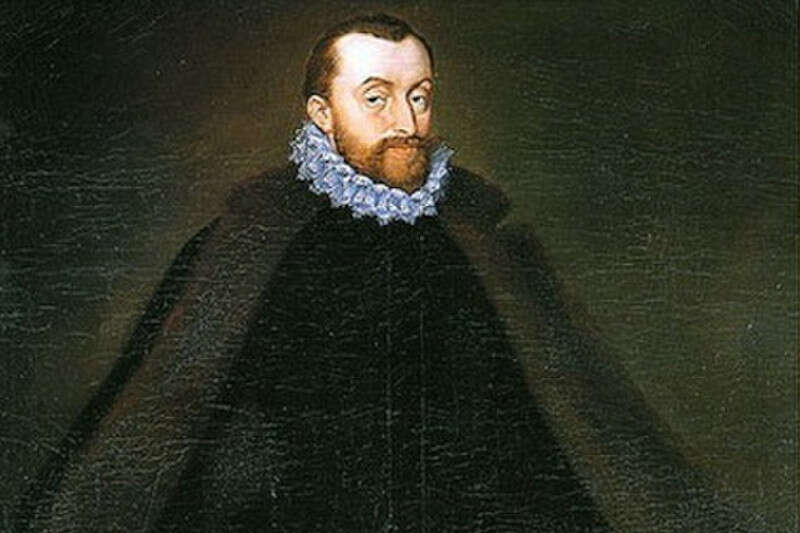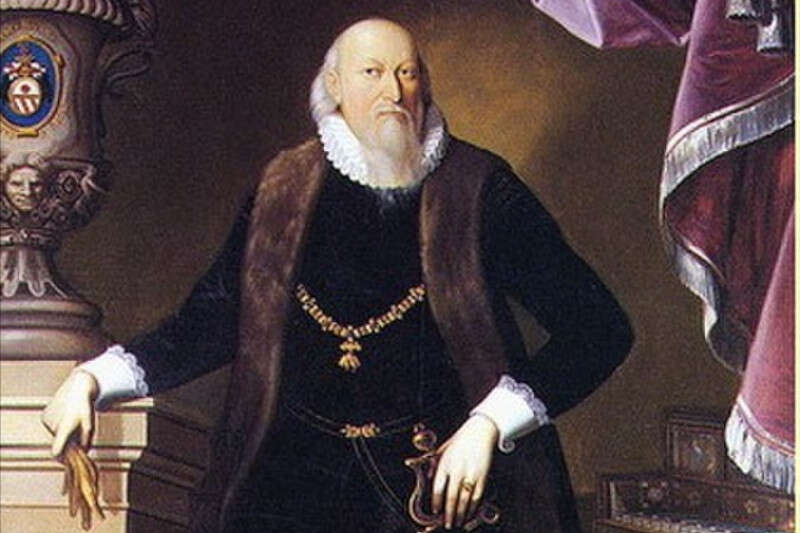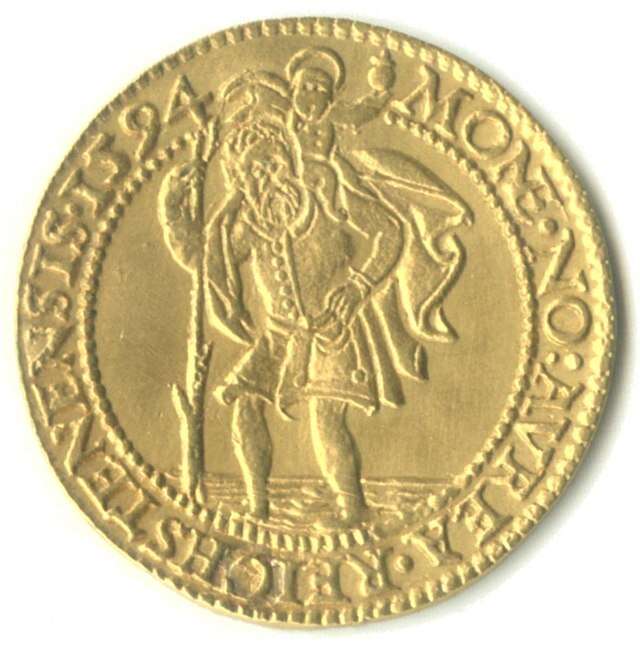Peter Vok of Rosenberg
Wok's of childhood
Petr Vok of Rožmberk was born in 1539 to Jošt III of Rožmberk and Anna of Rožmberk of Rogendorf, his second wife. Only fourteen days after his birth, his father died and his uncle Peter V. of Rožmberk became his guardian. By his instructions, Anna's children were taken away from her and Peter spent his childhood with his aunt Anna of Hradec in the castle of Jindřichův Hradec. In 1945, his uncle and guardian died and his mother Anna returned to raise her children. Petr grew up in Český Krumlov. He received his education from his home teachers at the castle in Český Krumlov.
First contact with politics
He gained his first political experience at the court of the future Bohemian King Maximilian of Habsburg. In 1562, Peter accepted an invitation from William of Orange and traveled to the Netherlands and England, where he was received by Queen
Elizabeth I. This study tour had a profound effect on his political and religious maturation. He chose Bechyně Castle as his residence, which he had rebuilt in the Renaissance style after the Italian model. The Italian builder Baldassare Maggi of Arogna and the painters Gabriel de Blonde and Bartoloměj Beránek - Jelínek, who were also in the service of his brother William of Rožmberk, also participated in the reconstruction of Bechyně Castle.
Vok's marriage
In February 1580, Petr Vok married the very young Katherine of Ludanice. At first they had an idyllic marriage as Katherine admired him very much. After a while, however, marital disagreements caused by her advancing mental illness. From the marriage did not come any children and Petr Vok became the last member of his family.
Family estates
Peter was the last Rožmberk who sold some of the outlying estates such as Bechyně or Stráž in 1956. A year later he gave his nephew Jan Zrinský of Seryn the manor and castle of Rožmberk. After the death of Vok in 1611, Jan also acquired Třeboň and Vyšší Brod. The last Rožmberk left Český Krumlov after the death of his wife Kateřina of Ludanice in 1602. His new residence became the castle in Třeboň, where he spent the rest of his life. Petr Vok died in Třeboň and his body was placed in the Rosenberg tomb in the Vyšší Brod monastery.
Vok's activities
Petr had a great passion for collecting, which he developed throughout his life, and he put his political career on the back burner thanks to this passion. He even built an extensive library in Rožmberk, which was looked after by the librarian and archivist Václav of Březany.
His next and last diplomatic activity was to resolve a difficult situation in 1611, when the troops of the Bishop of Passau invaded Bohemia and conquered Český Krumlov and then even camped there. To get them out, Peter was forced to pay off the troops. Petr became the first man of contemporary politics and the richest nobleman of the country. In Krumlov he founded the church of St. Vitus and a hospital with the church of St. Josht.











